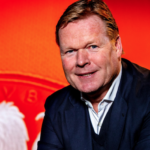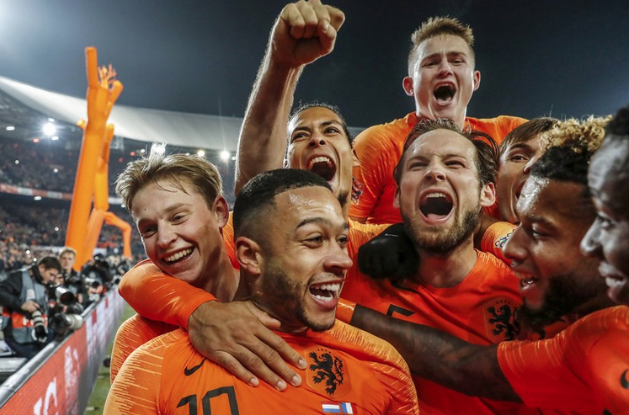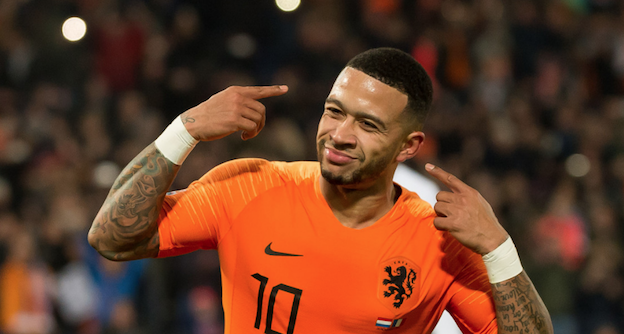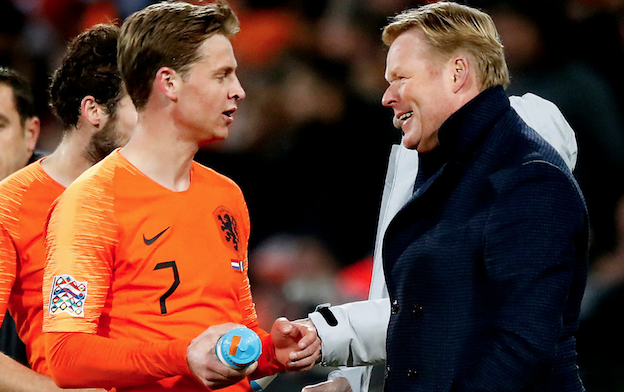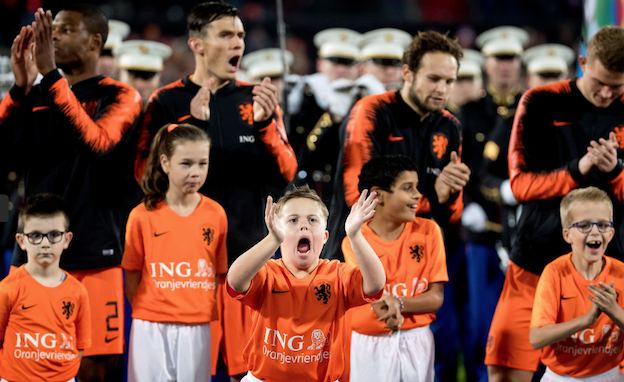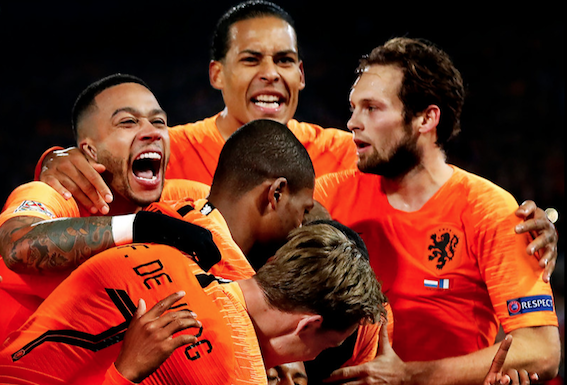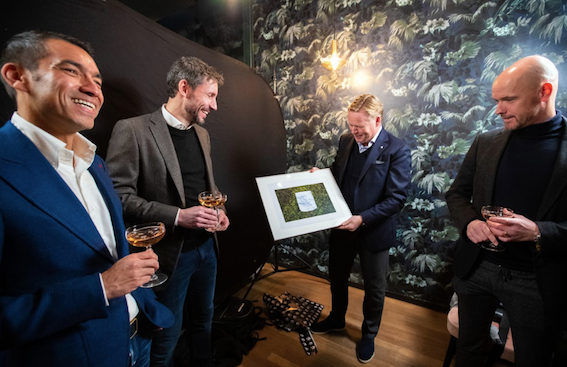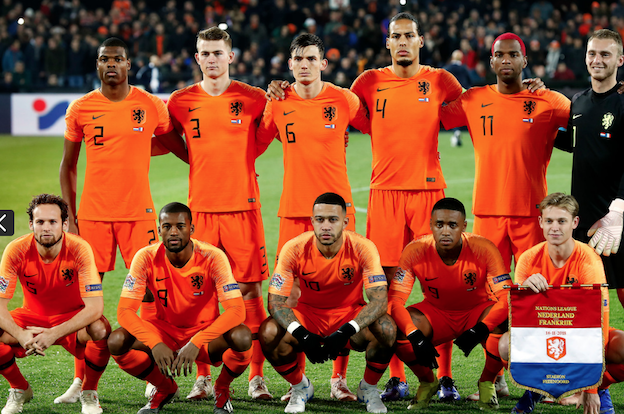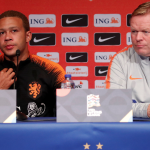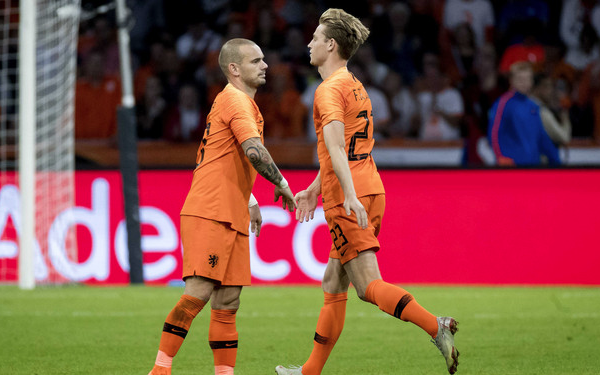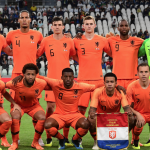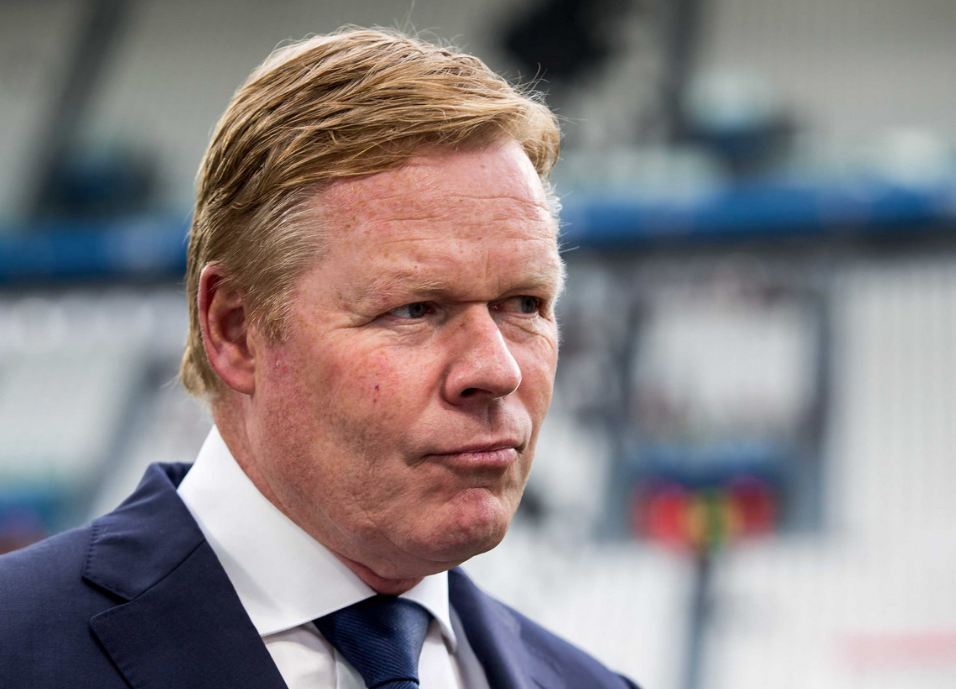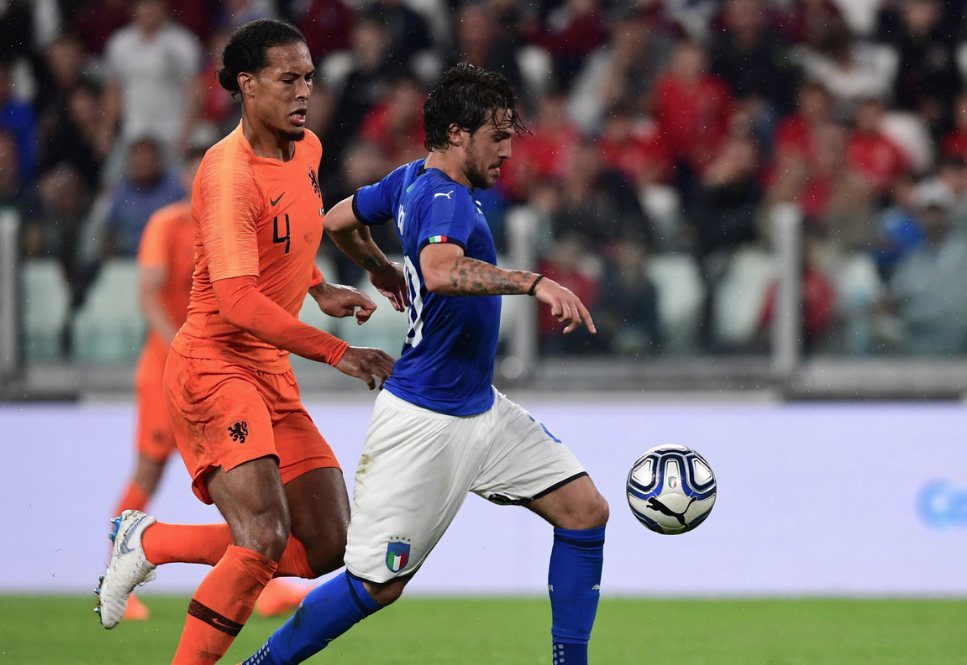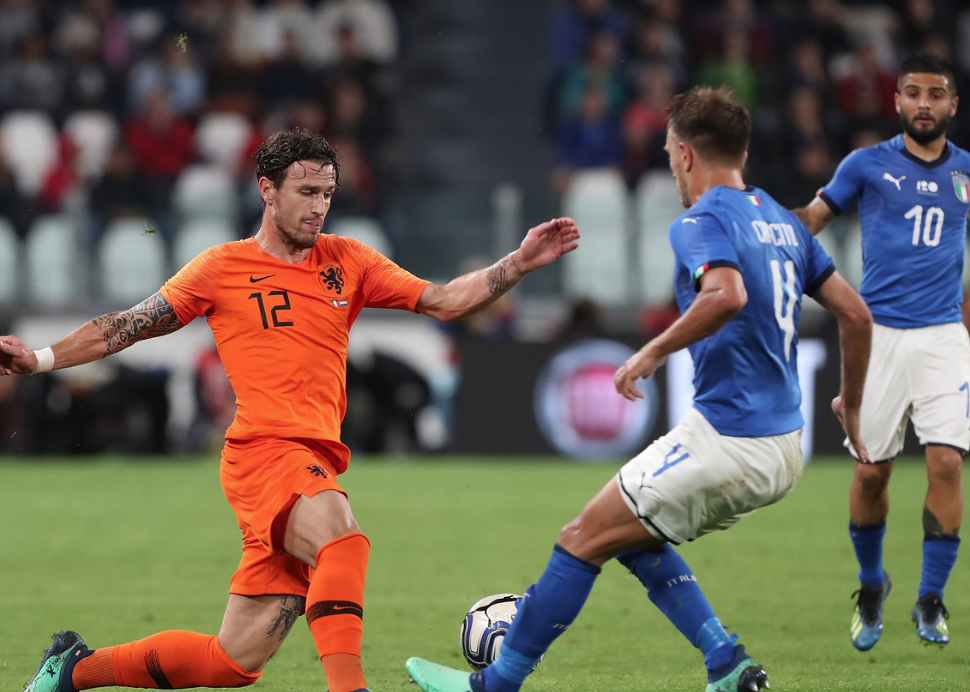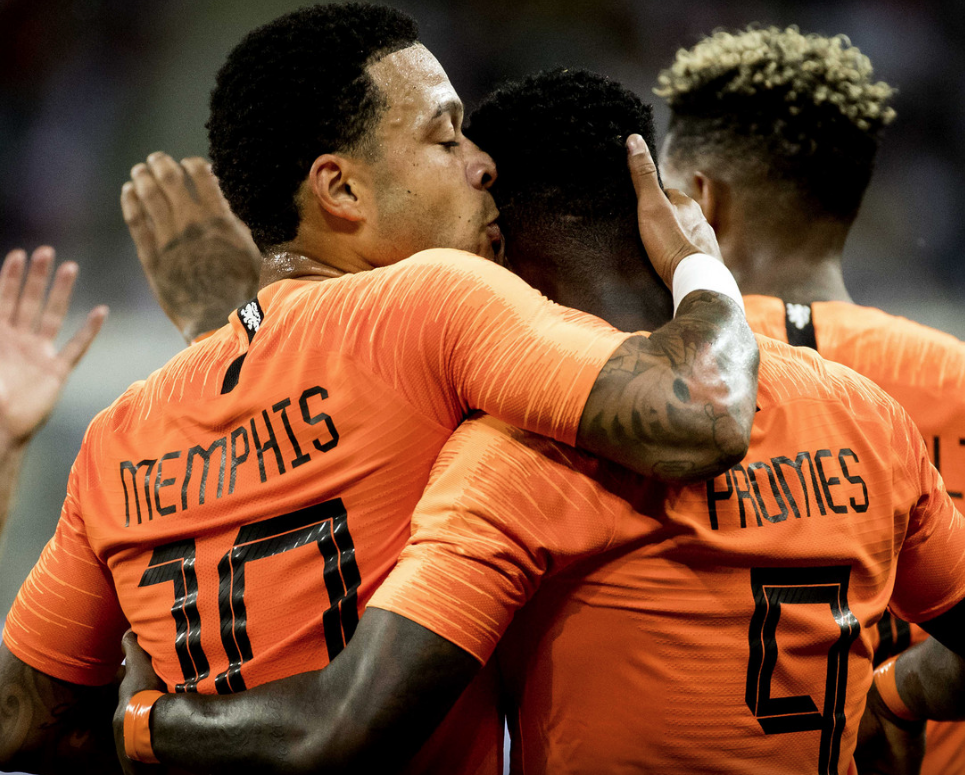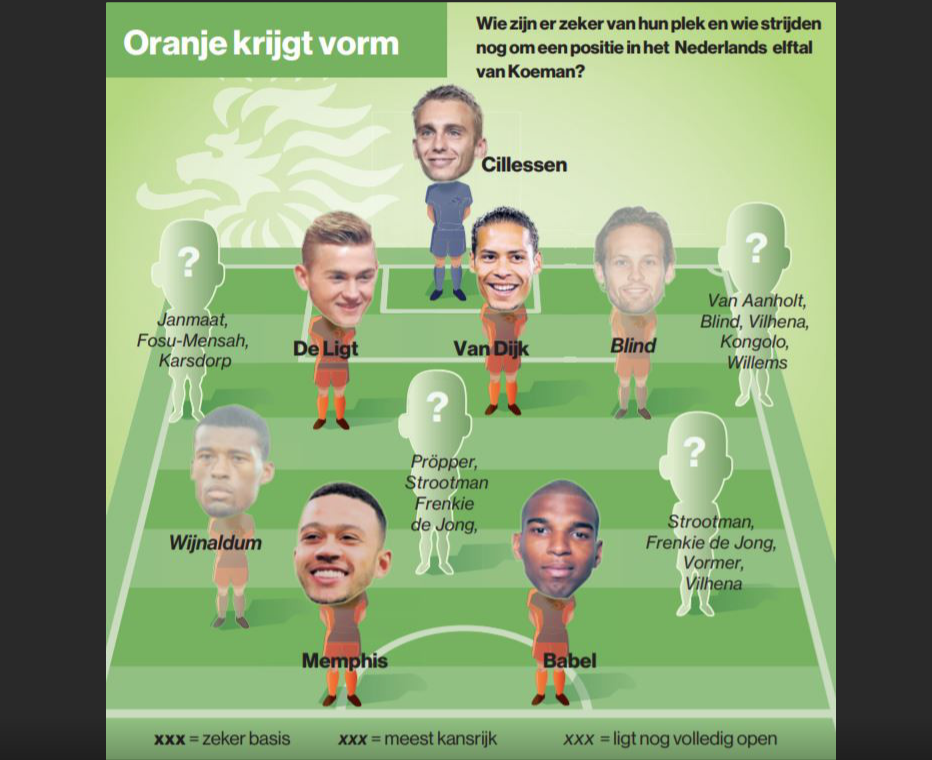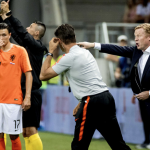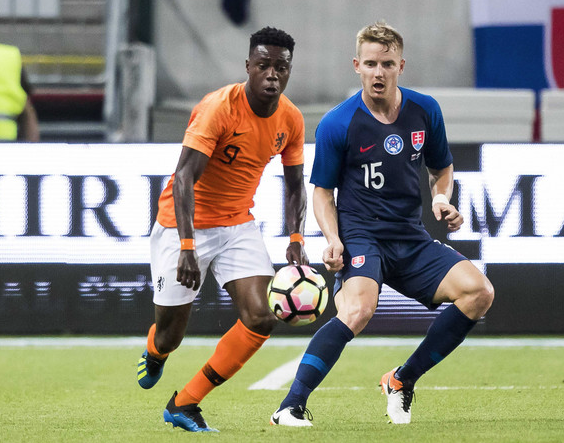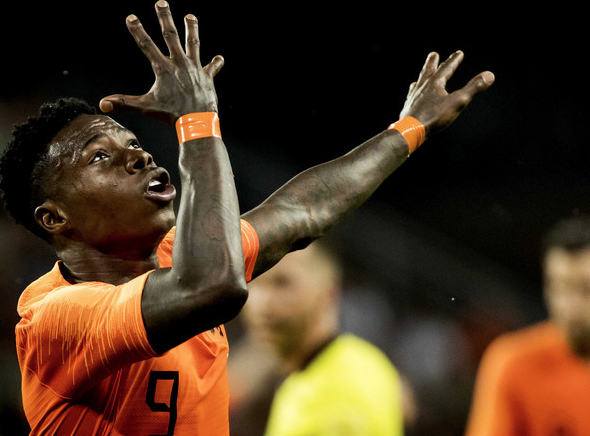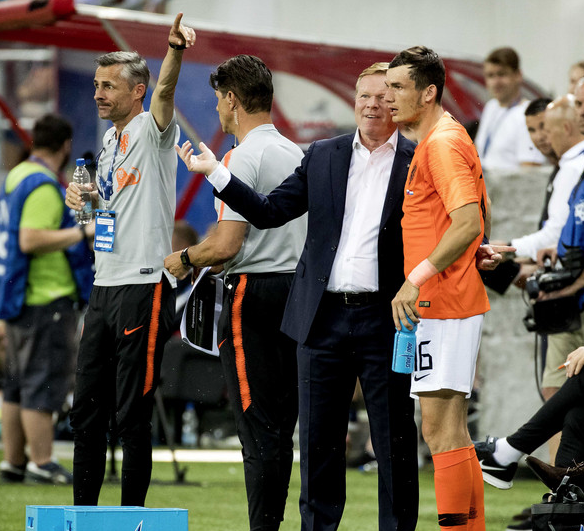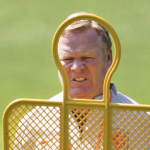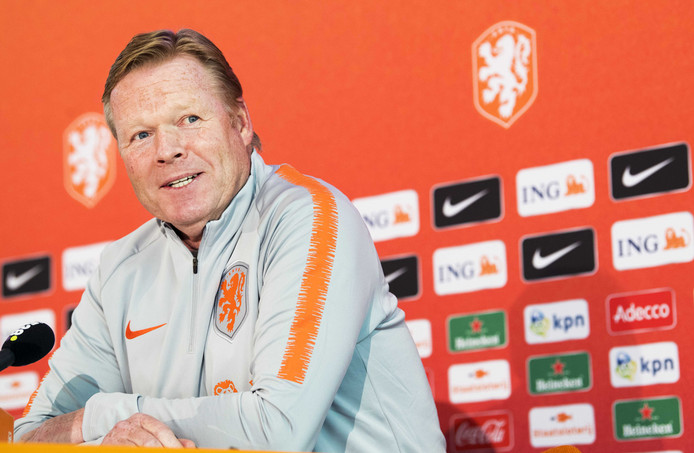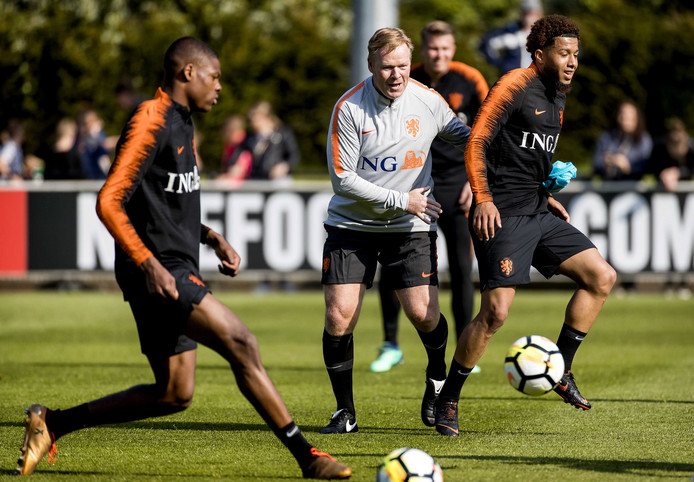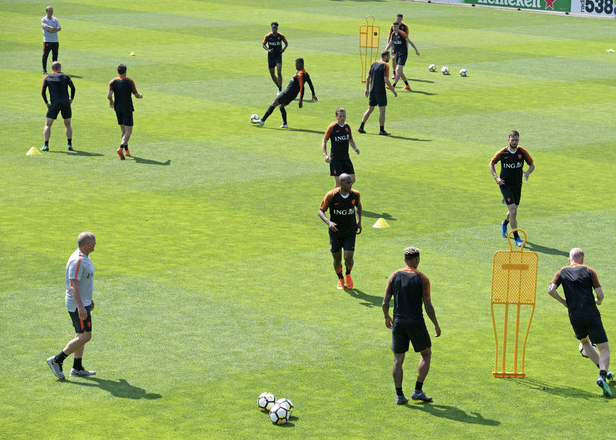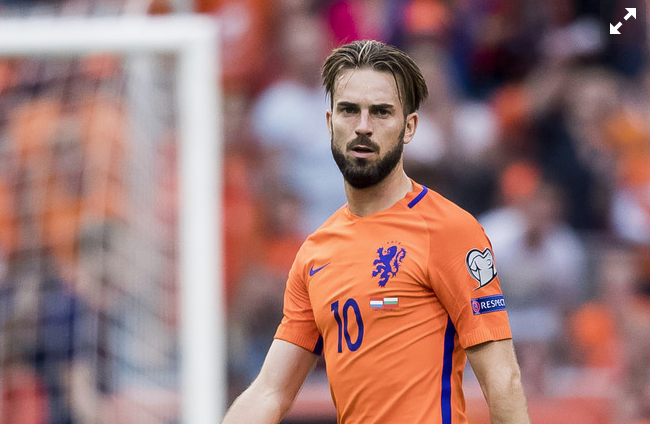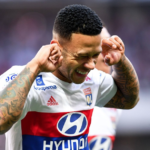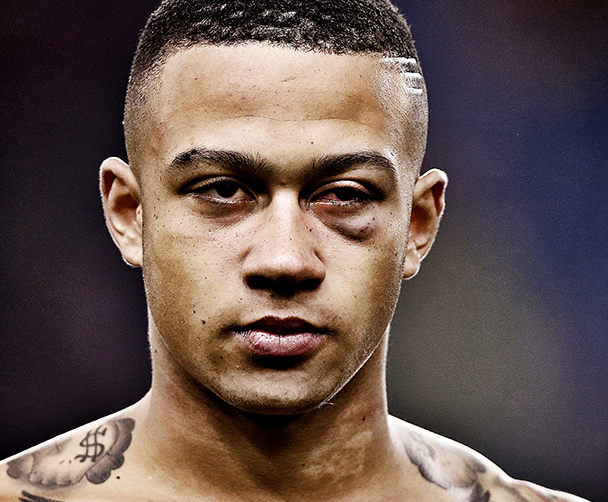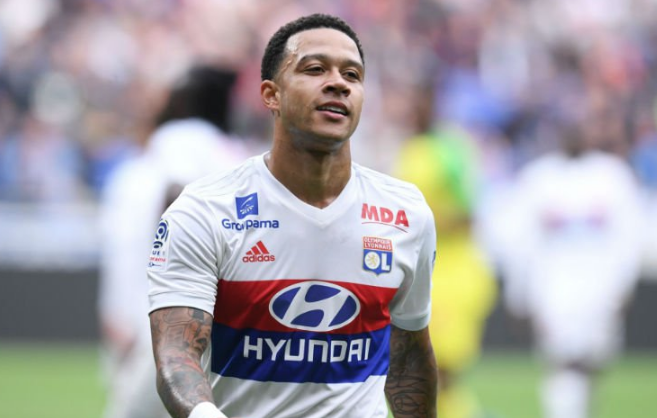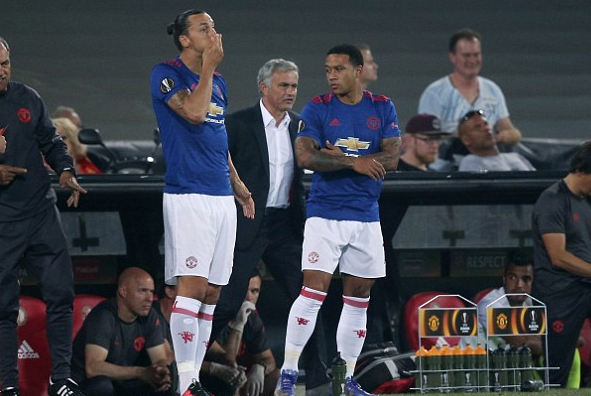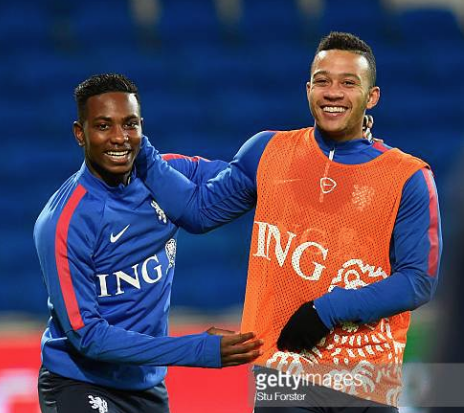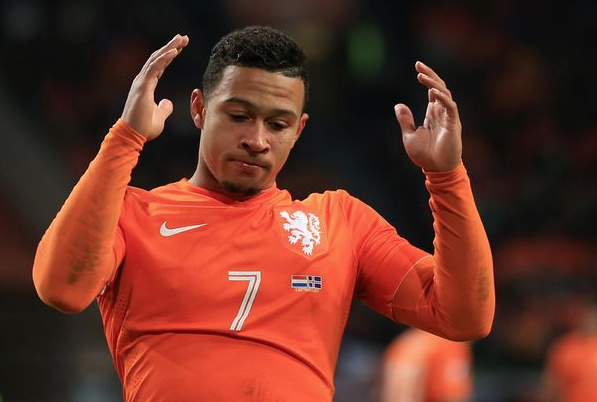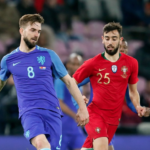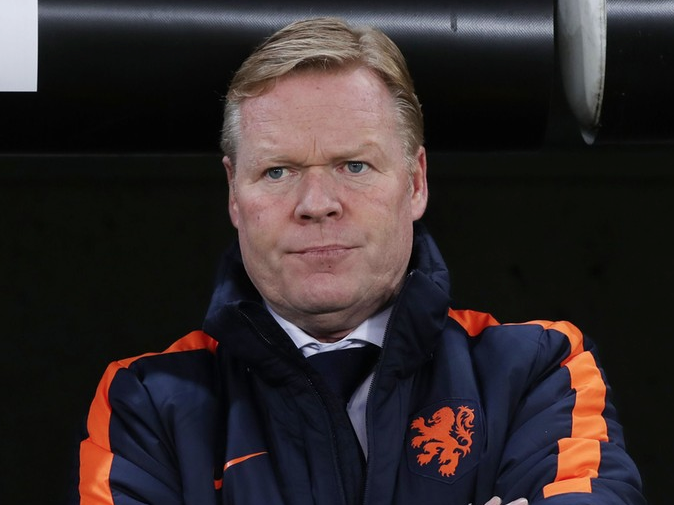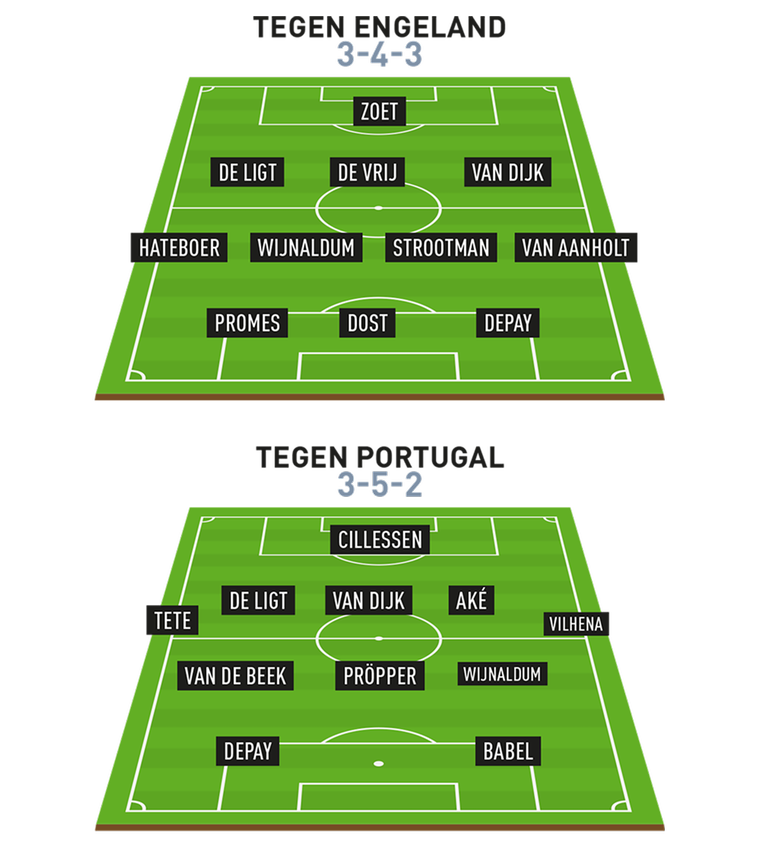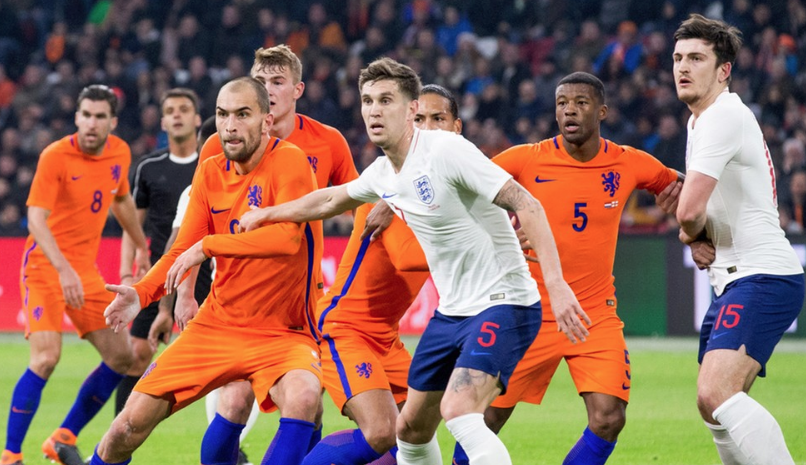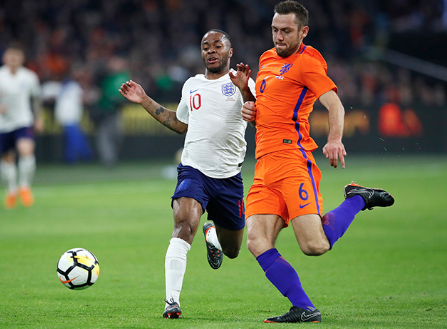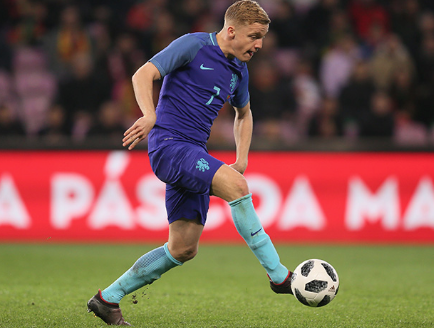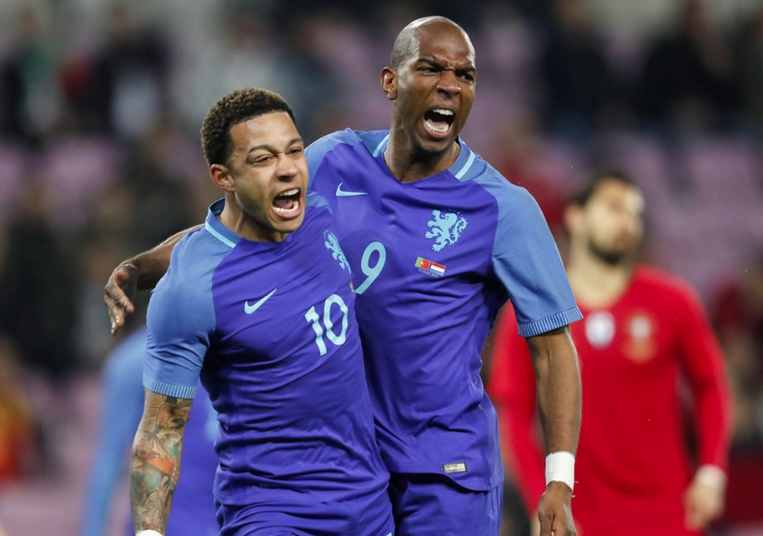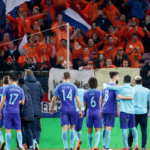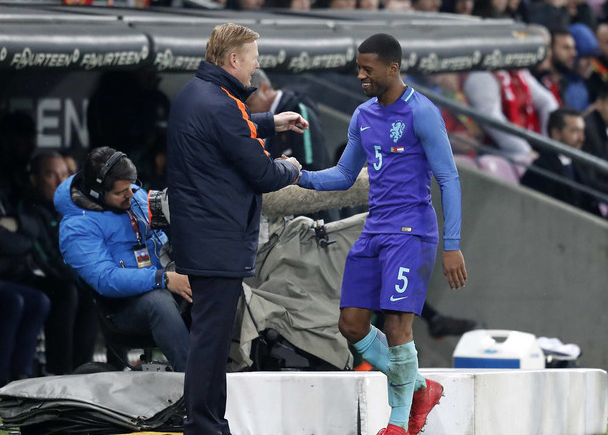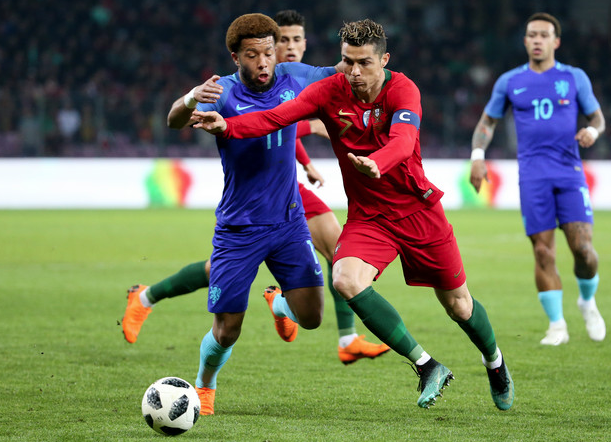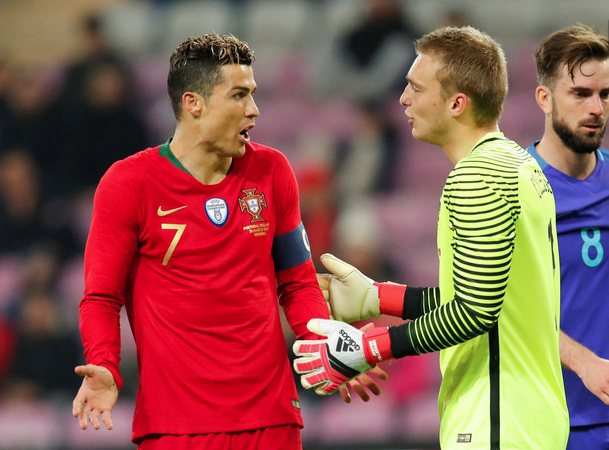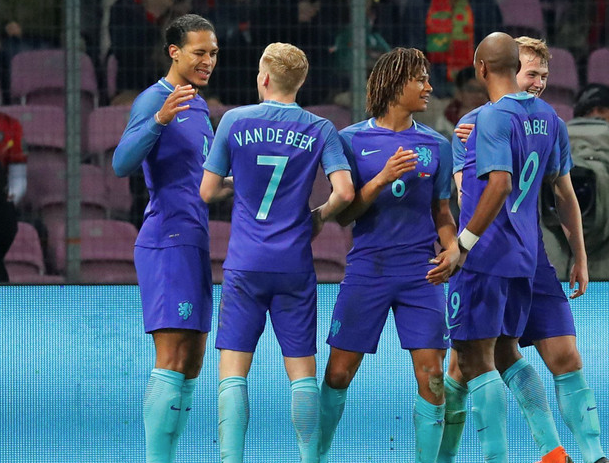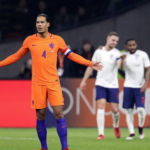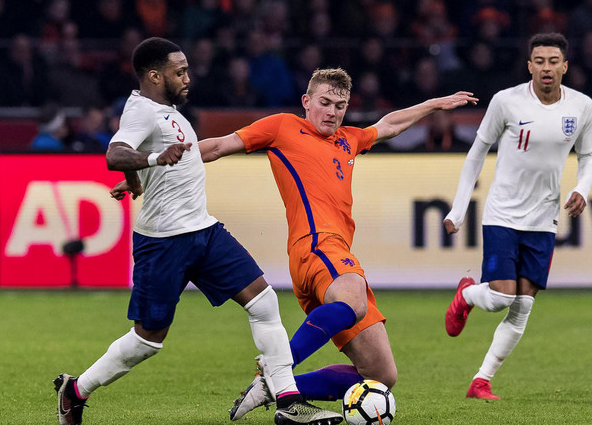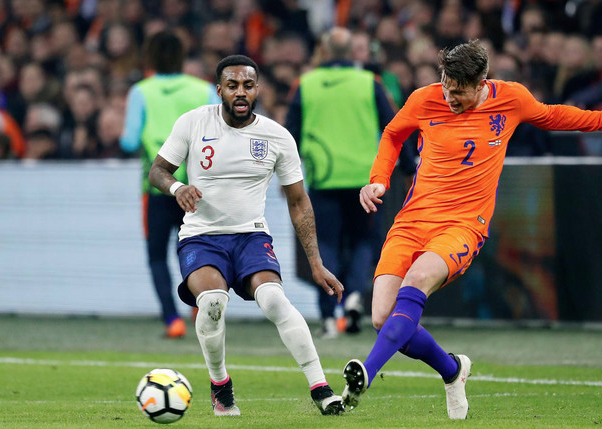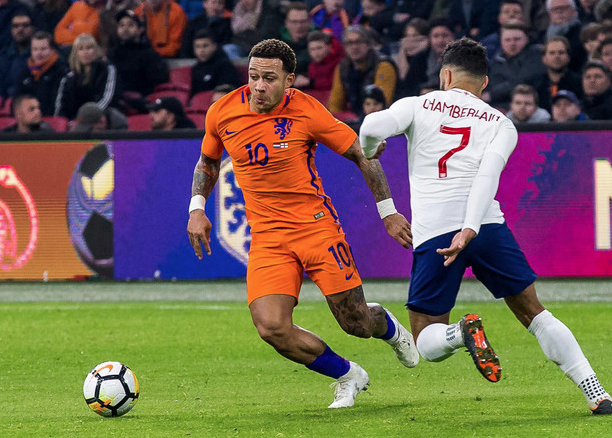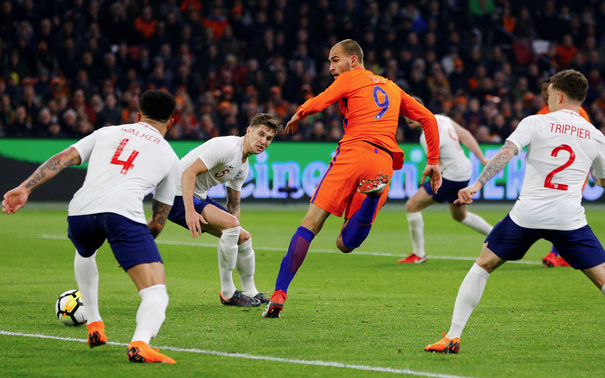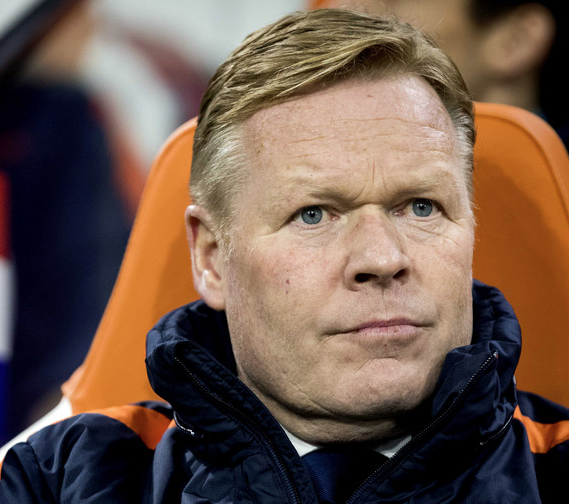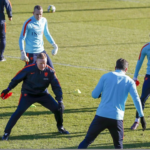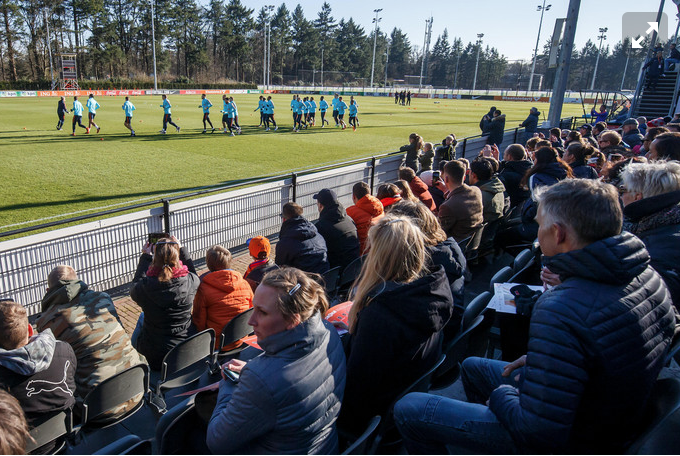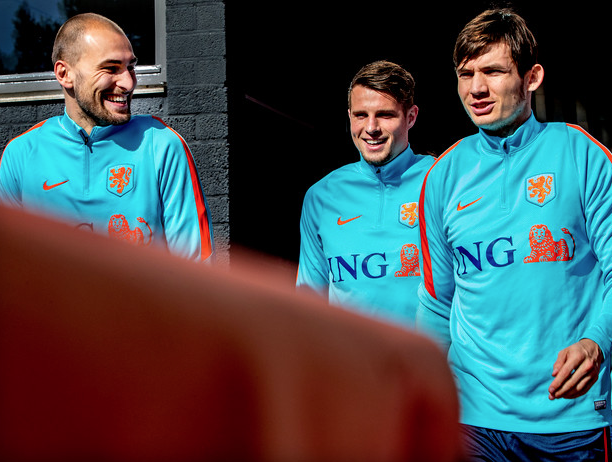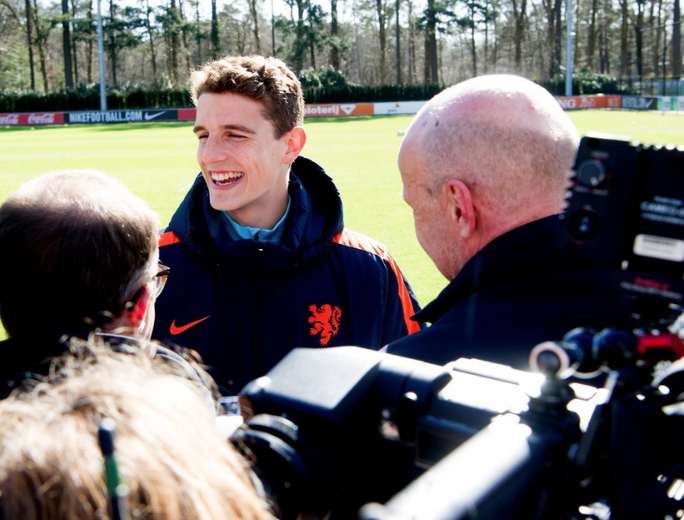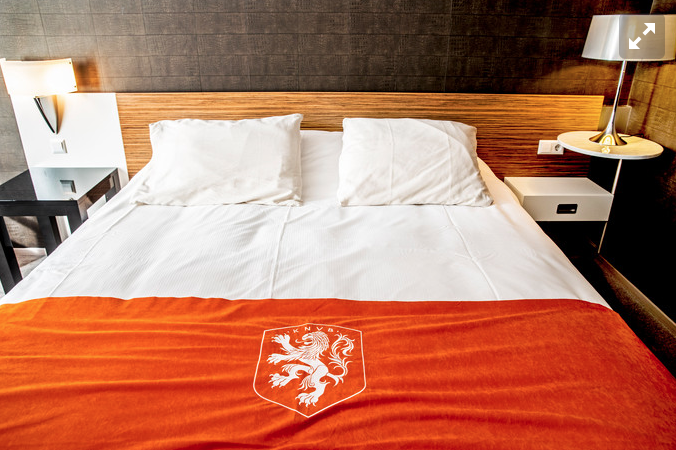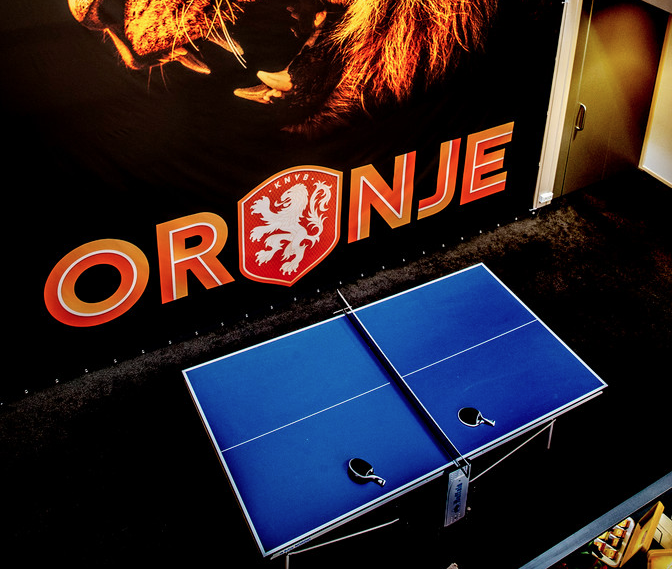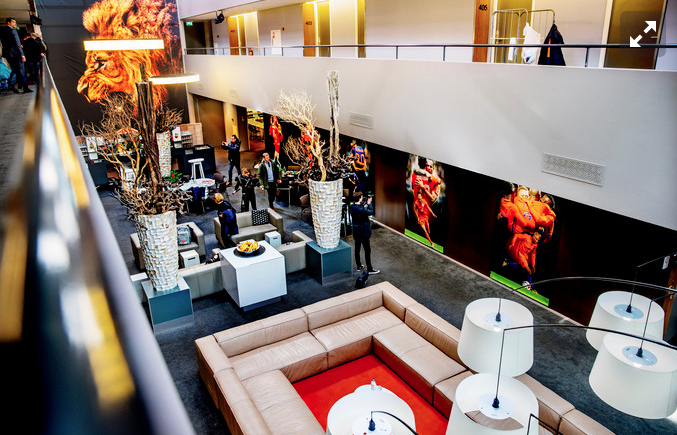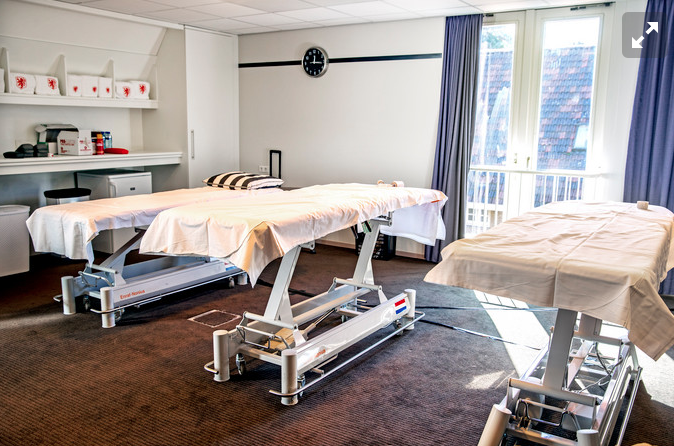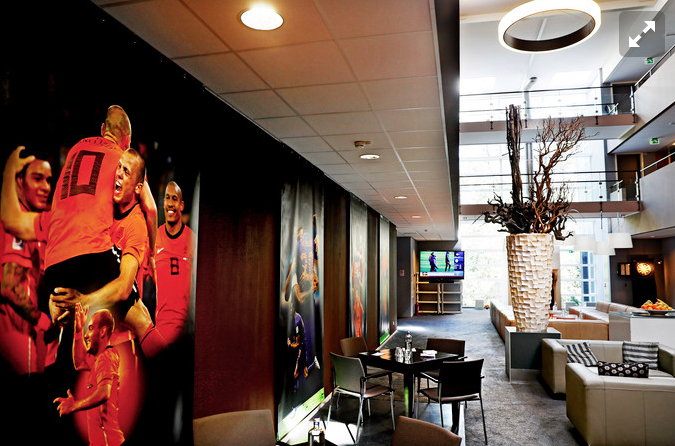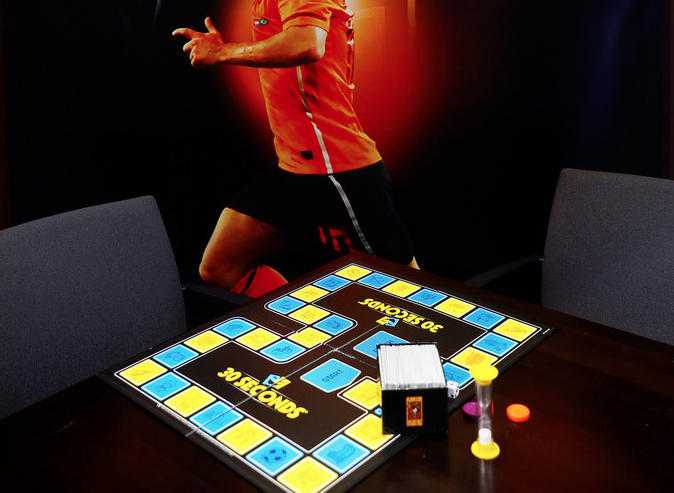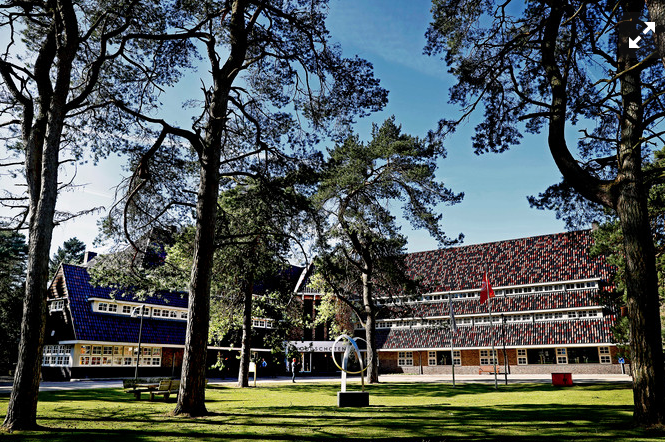It’s a tradition. Every last week of the year, this blog has an in-depth one on one with the most important man in Dutch football: the NT manager.
This is also my way of saying: Happy New Year and thanks for following the ramblings on here… It’s highly appreciated.
At the bottom of this blog post you’ll see a video with the highlights of this Oranje year.
I’ll follow this post with some nice predictions for the year to come.
Until then, please drink a lot of alcohol on New Years Eve and then enter an amount in the paypal option on this blog to support another year of the Dutchsoccerblog and press “DONATE” so I can also buy food and water for New Years Eve….
For Ronald Koeman, 2018 was the Year of the Resurrection. 2019 is the year we will really have to show what we are worth. Thanks to the AD Sport papers and VI Pro.
The big photo on the table shows a group laughing and cheering Oranje players. Young lads celebrating the second goal vs France, Depay’s Panenka. The goal scorer is the beaming centre of the grouphug, with Frenkie de Jong, Tonny Vilhena, Virgil van Dijk and Daley Blind as his rays. Matthijs de Ligt is seen in the background. Koeman looks at the photo and smiles: ” This is what we aimed for when we started. Have fun, enjoy yourself and radiate happiness to be part of the Oranje team. And all this, is visible in this picture.”
The photo does summarize the year Oranje had. The resurrection, the new swagger. Four wins, four draws and only two defeats in matches against top nations. And the first spot in the difficult Nations League group. “No, I didn’t expect all this,” says Koeman. “If we would have lost 6 games, it would not have been odd. That was a scenario I worked with as well.”
Koeman is at the KNVB Sports Centre, the new home of Oranje. After the abysmal results with Hiddink and Danny Blind, not qualifying for two major tournaments, Koeman decided to bring his squad to the forest in Zeist, as opposed from the holiday seaside town of Noordwijk. “I spent two to three days per week here. They had the KNVB Christmas drinks thing the other day, obviously I felt I had to be present for that as well. As a kid, 13 years old or so, I came here with the North Region rep team and also later with the Oranje squads. This is the hub of Dutch football. The facilities here are good but not as luxurious as what some top clubs offer their players. It’s quite impressive what is happening at Man City, Liverpool, Everton and Barcelona. We can’t offer that quality yet, so I had my doubts… How would the players respond to what can be seen as a step back, but the players actually loved it. There is more bonding going on, they tend to spend more time together playing games, and having fun. In Noordwijk, we had this one floor in the hotel but that place was so big, you could easily decide to be alone and not see other players. When you wanted to hang with another player, you really needed to coordinate that. Here, the rooms are closer, the communal areas are in the middle, you constantly see each other and have those impromptu little circles going on, players talking, playing cards, checking moves out, etc.”
Does this generation need that?
“Well, it’s mainly good for the image of the team. People always say “they make so much money and they don’t really work for it”, but these lads are focusing on football 7 days a week. The programs they run through, the nutritional aspects, the body work, it’s so different compared to my time as a players. In my days, we had Jan Molby at Ajax. His warming up was shooting 20 balls on goal. That’s it. Today, that would be unthinkable. So, this environment is the right one for the way the players today work, live and operate. I can’t see any other sport being more intense than football, as it used to be…”
What are your thoughts re: Memphis, the central figure in this photo?
“It definitely applies to him too. He does everything for his sports. We all had the idea, me as well, that he was a bit complacent. I met him in Liverpool when I wanted to get him in on a loan deal from Man United. And ever since that meeting, my view on him changed. I really feel a click with him. I mean, yes I see the Instragram clips and think, oh well… That cigar wasn’t needed for me, but at the same time, I think…so what? Leave him be. Players these days are constantly in the spotlight. Whenever they go out for a drink or a meal, it’s going viral on the net. So if Memphis enjoys doing those little clips: fine. Let him.”
In the past, you clashed with the young Wesley Sneijder and Rafa van der Vaart. This is now the more experienced coach talking?
“Yes, I guess. I was a young coach back then and I wanted to project my ideas, my values onto these lads. I was too rigorous in that, yes. Coaching is an experience craft. I have learned to see that everyone is different and that younger generations are different.”
The current Oranje players are of the same age as your kids. Doe that help?
“For sure! My kids love following Memphis and the others on social media. They are used to it, and it’s part of today’ sports culture. So yes, I sometimes check in with my kids to ask their opinion about things, and at times they simply tell me what they think and I can see more and more how things work for the younger generations.”
Ronald Koeman is not just the NT coach, he is now also the figure head of Dutch football and spoke at the NL Coach Congress recently, using an example of what happened at Ajax – Bayern Munich… “I used it as an example, but Bayern coach Kovac had two experienced bench players, Hummels and Martinez and he let them warm up in the second half, for at least 20 minutes. He needed something to happen, as Ajax was in front. When he finally wanted to use his third sub, he turned to Renato Sanches who was sitting on the bench. He hadn’t done a warm up. He used him, and Sanches went onto the pitch cold. I watched Hummels and Martinez, who looked at each other with confusion and a wry smile. That sort of thing has an effect. On the coach, on the vibe in the squad, the mentality of these older players, the hierarchy. Lets just say, it wasn’t smart of Kovac to do it like this. These are the little things that can work against you in terms of player support and team spirit.”
Wat did you do to re-establish a new hierarchy with Oranje?
“That happens in a natural way. Memphis doesn’t want to be the designated leader but he leads due to his way of playing. Virgil is a natural leader because of his age and his position on the pitch, his charisma and experience. Gini Wijnaldum, Jasper Cillesen and Kevin Strootman are key players as well. They play at big clubs, they’ve been around and share their experiences. And the technical staff is also about clarity. If things are unclear, we want players to speak out. If things are not clear, players get nervous.”
Was it important too that dominant personalities like Robben, Sneijder and Van Persie are no longer part of Oranje? Wijnaldum mentioned something like “a gap in the squad”?
“I guess so. But for clarity’s sake: I have asked Robben in the early phase of my role here, to come back to Oranje. He is still so good. But yes, with the big lads gone, there is space for the younger players to step into that space and show what they are made of.”
And with the rise of talents like De Ligt and Frenkie de Jong, the jigsaw puzzle suddenly seemed complete?
“Ha, I read somewhere that this coach has a golden dick, hahaha. But yes, a coach is only as good as his material and these two are really good. I actually spoke to Pep Guardiola about both, some while back. He is completely smitten with midfielders like Frenkie and he wanted to know everything about him. Frenkie has really made a contribution to Oranje. He is biggest quality, is that he can postpone his decision on the ball, just another couple of seconds so he can give that pass that another player wouldn’t be able to give. And everyone goes: damn! That was amazing.”
About the past couple of years… we thought our football was in crisis. Was that a knee-jerk response? Were we really that bad?
“Well, something had to happen for sure. We need to do more to get to the top. In Holland, we always thought that with our talent, we just need to play some good football and then we’ll get there. But the nations in Europe and beyond have learned as well, and developed. Countries like Iceland, Wales, Uruguay, Japan, Australia are no longer walk-over nations in football. It’s the same at club level. Look at Ajax in the past 10 years in qualifications of the CL tournament! It has become harder on all levels to get to the top. Belgium was a nice example for us. They can play re-action football like they used to do, and use the turnaround moments, but they can also dominate and play the “Dutch way” for lack of a better term. They are flexible within their format. I like that. And like Belgium, we have the players to do both, as well. And in 2019, we will face Germany again, for the Euro qualifications. I’m already thinking about how to approach those games.”
Oranje went from underdog to the favorite again. 2019 is a year with heavy expectations.
“I do wonder, if we can extrapolate the way we played this year, to next year. We will start vs Belarus and can we play like we did this year, against a ultra defensive team? Can Memphis be as important? Or, do we need to use Luuk de Jong as central striker and make some changes? We never had to do this as we only played strong, domineering teams but I do realise that in 2019, it really starts. I wouldn’t have minded another friendly before we start for the Euro qualifications against an opponent like Northern Ireland.”
Some players dropped in the hierarchy. Kevin Strootman seemed to have lost his starting spot. How do you deal with that?
“Well, Kevin will be part of the squad as long as I see that he wants to be. He’s important for the group, he’s in the players council. I will always check the dynamics of the players on the bench. Do they celebrate goals of the team or do the join in after a won game? That sort of conduct is taken into account.”
You once mentioned how Rinus Michels decided to take players like Hendrie Kruzen of FC Den Bosch and Wilbert Suvrijn of Roda to the Euro1988, as they were players happy with a bench role and still giving 100% at training. Does that influence your way of thinking?
“Absolutely. You have to take personalities into account. And particularly at a big tournament. You are so close for weeks. Look at Belgium again: Nainggolan wasn’t part of their squad. Judging from a distance, I suppose it has to do with hoe he deals with not starting a game. In our case, the Euros are still a bit away. A lot can change. Transfers, injuries, development of players. Take Promes, he started as a wing back at Sevilla! That could be an interesting development for us.”
Did you also ignore players in your selections to give them a sign?
“Yes, take Steven Berghuis of Feyenoord. He is a great player. With the ball. Without the ball, he needs to do more. I saw him recently play against PSV, and he was fantastic. That is what I want to see week in week out. He knows this.”
Now you’re back in Holland, after a number of years in England… Is there anything you like from what you see here, in our competition?
“Holland will always bring talent early. Recently, Orkun Kokcu at Feyenoord. 17 years old. In England I have Ward-Prowce, who was a bit older but our board said: he can’t play more than 10 games per year. In England, they see young players as a risk. We don’t. And I’m certain that in 10 years time, we’ll have the next De Ligt or Frenkie de Jong, chomping at the bits.”
You worked at the top 3 in Holland. Which club do you think is the hardest one to manage?
“I have to say Ajax. I think particularly today, with that trophy drought. Ajax invested heavily into more expensive players as well and sacrificed Keizer and Bergkamp. The pressure is on there. And Ajax always has several streams of important people behind the scenes, trying to pull strings. It’s always a difficult club. They also want to see attractive football. When De Boer won his fourth title in a row, he was criticized for the boring play. That would never happen at PSV. PSV is different. Similar top sport climate, but more a gentleman’s club. Whereas Feyenoord is hard because of the lack of resources and the enormous expectations and hunger of the Legion but the love and support of the Feyenoord fans is undying. So I have to say Ajax.”
It’s good for Dutch football to see Tadic and Blind back in the eredivisie, right?
“Absolutely. I worked with Tadic at Southampton and I saw what he did for his fitness, his rhythm. He is so fit and strong and has a great mentality. It’s so good for the youngsters to have him, for at Feyenoord to see Van Persie and before him Kuyt. The young players will learn a lot from that.”
You mentioned something you picked up from the Dutch women’s team…?
“Yes! I wasn’t even NT manager when it happened. I was invited to give them their award some while back, best sports team of the year. I said I loved to see them, and that their appeal was so broad because they clearly had fun. They played with a big smile on their face. And they are accessible and down to Earth. I think supporters like that. And when I compare that with the internationals I had at Southampton and Everton… They’d return from their Oranje stint and I didn’t see any enthusiasm.”
You turned it around quickly.
“But that isn’t my work. It starts with the players. And they are being developed and coached daily by the club coaches. By Gio, Mark van Bommel, Erik ten Hag, etc. I also realised that Danny Blind and Guus Hiddink had a lot of bad luck. And I don’t mean that Bas Dost goal vs Sweden, alone. Also all that drama at the KNVB, with the technical director, the decisions made by the board, assistant coaches leaving, there was no consistency, no positive vibe and when it storms at the top, when you’re on the ground you will feel the rain and get wet. The whole vibe around Oranje was negative.”
Did it all turn around? Or do we still need to make structural changes?
“The times we live in are different. This applies to society, but also to football. In the past Robben or Rep or whoever was our winger, could take 10 mins rest per match. Stay up and wait for that stray ball. Today, wingers are the first defenders. The physical demands are so much higher now. I am not sure if we have incorporated that into our development and you could even say, that culturally, we don’t like doing this. We seem to be a complacent and lacklustre, in general. Listen to all the players that make a move to a bigger competition. All of them, no exception, will tell you: wow, they work so hard, the training is so intense, we don’t see a single ball in the pre-season, it’s just running and weights…. That is such a clear signal to me.”
These days, the laptop coach is making his way. Using stats and simulations… do you work with this?
“Yes, you will always find ways to incorporate it, but it’s not leading for me. The interpretation is key. We had a lot of this at Everton. We played Chelsea and I took the stats and saw that Diego Costa made significantly more runs in behind than Lukaku. And we constantly had to go with him. So I used this in my prep with Lukaku: look mate, this is Costa, and this is you!”
“But the essence of coaching, is management of people. We have 20+ top players. All alpha males and they all need to go into the same direction. They all have their own ideas, they all have invented it and they know everything better. And to lead that, you can only do that by creating a bond with them, a mutual understanding.”

